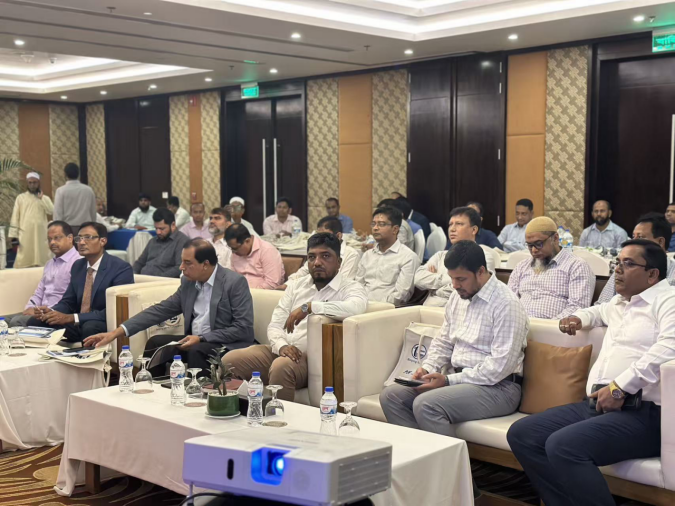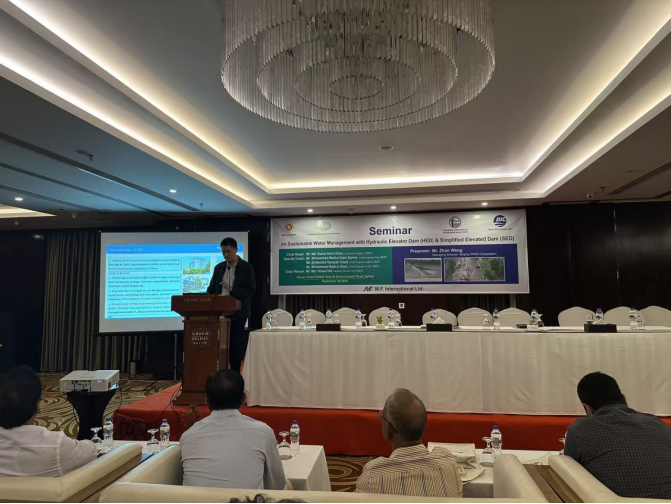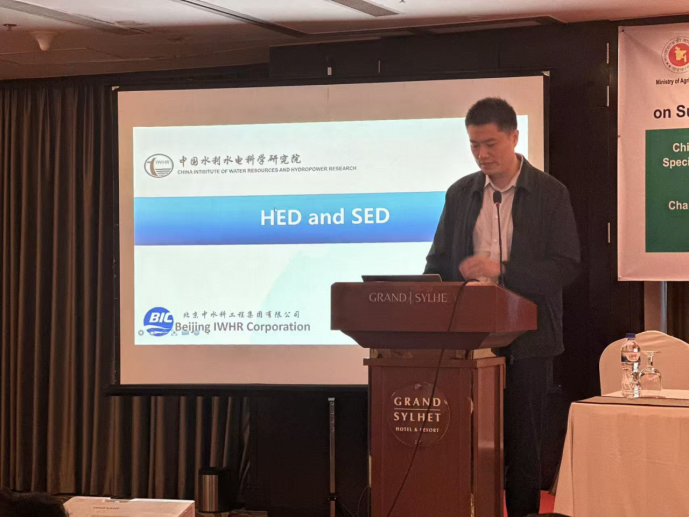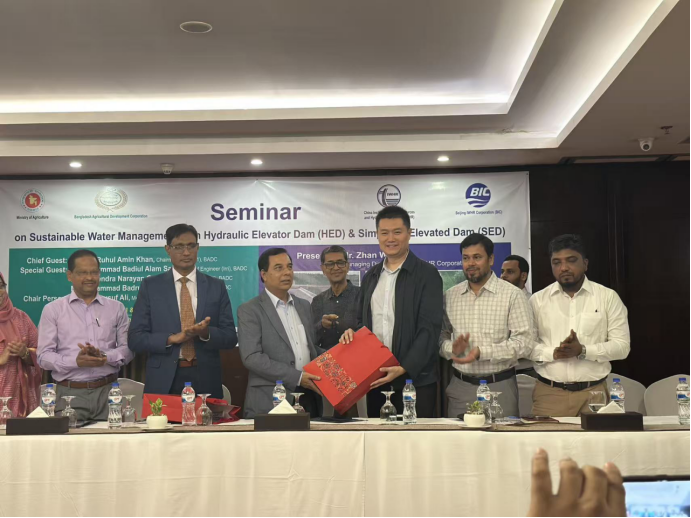

On September 25, 2025, with the strong support of the Bangladesh Corporation, BIC successfully held a professional seminar titled "Sustainable Water Resource Management – Application of Hydraulic elevator dam and Simplified elevated dam in Bangladesh" in the S region. This seminar focused on the critical challenges of water resource management in Bangladesh, aiming to promote sustainable water use and upgrade water infrastructure through technical exchange and experience sharing. It attracted over 40 key participants, including the Chairman, leaders responsible for water projects, and heads of relevant departments and technical staff, establishing a crucial communication platform for deepening cooperation in the water sector between the two parties.

As a significant event in Bangladesh's water sector, the seminar commenced with a welcome address by Chairman. In his speech, the Chairman highlighted that Bangladesh, situated in the Ganges-Brahmaputra Delta, is rich in water resources yet faces uneven distribution and frequent seasonal floods and droughts. Sustainable water resource management remains a key issue for the country's agricultural development and livelihood improvement. “Hydraulic elevator dam and Simplified elevated dam technologies offer significant advantages in water regulation, flood control, disaster mitigation, and farmland irrigation. This technical exchange with BIC provides new directions for addressing local water management challenges. We look forward to promoting the application of these advanced technologies in Bangladesh through our collaboration."
Following this, Wang Zhan, Director Manager of BIC kemao, delivered a core presentation on Hydraulic elevator dam and Simplified elevated dam technologies. Starting from their technical characteristics, he detailed the advantages of both gate types—"lightweight structure, easy installation, low maintenance cost, and adaptability to complex hydrological environments." Compared to traditional gates, the Hydraulic Elevator Dam can operate automatically using water flow, reducing manual intervention. The Simplified Elevated Dam, with its modular design, can be quickly adapted to different river widths, making it particularly suitable for small-scale hydraulic projects in rural areas of Bangladesh. Regarding the design philosophy, Wang Zhan emphasized "adapting technology to local needs." For instance, considering Bangladesh's rainy season and high sediment load in rivers, the gates use high-strength steel resistant to corrosion, while the gate structure is optimized to guide flow and prevent sediment accumulation from affecting operation.


After the presentation, the seminar proceeded to an interactive session. Heads of various departments engaged in lively discussions on topics such as "the adaptability of Hydraulic elevator dam and simplified elevated dam in different regions of Bangladesh" and "technical support for post-installation maintenance." The BIC team expressed its commitment to establishing a dedicated service team to provide comprehensive technical support for subsequent project implementation. The Q&A session was dynamic, resulting in multiple consensuses on details of technical cooperation.
The successful conclusion of this seminar not only established a regular technical exchange mechanism between BIC and Bangladesh corporation but also marked a critical step forward in their collaboration within the field of sustainable water resource management.
